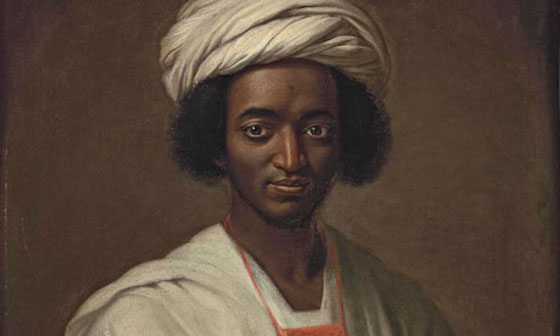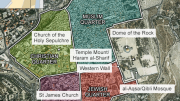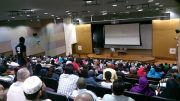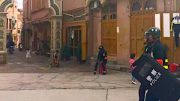Access the original article in the UK Independent here
William Hoare’s early eighteenth century portrait of Ayuba Suleiman Diallo, a Gambian prince who was sold into slavery and later freed, was seen in public for the first time in more than a century when it came up for auction in December. It was bought by a private collector for more than £500,000 but when the new owner applied to take it out of the United Kingdom, the painting was temporarily stopped from being exported because of its importance. UK’s National Portrait Gallery has since been given until late August to raise enough money to acquire the oil painting and needs to £100,000 in donations from the public. The Art Fund has already donated £100,000 and the Heritage Lottery Fund has given a further £333,000. The rest of the money needs to be met by private donations if it is to remain in the UK.
Diallo was one of the few people to successfully escape the slave trade and return to his homeland. Born into a powerful family of Muslim clerics in the Senegambia region of West Africa, Diallo found himself sold into slavery when he was attacked by a rival tribe.
At the time of the attack Diallo had himself been on a trade mission to sell his own slaves and buy paper. He was transported on a British ship to Maryland and put to work on a tobacco plantation.
Following an attempted escape which landed him in prison, he came across the English lawyer Thomas Bluett, an early Christian evangelical who was impressed by Diallo’s faith and his high birth.
Concluding that the Gambian prince was “no common slave” he arranged for him to be released from prison and brought to the UK where he quickly made friends with many educated thinkers who would go on to inspire the anti-slavery movement.
His circle of evangelical friends were astonished by his ability to write out the entire Qur’an from memory and Diallo was known to have helped Sir Hans Sloane make English translations of the Muslim holy book. Hoare’s portrait shows the young prince with one of his own hand written Qur’ans strung around his neck.
Zeinab Badawi, the BBC broadcaster and a National Portrait Gallery trustee, said the painting helped provide further context to the narrative of both the slave trade and Islam in Britain.
“It is striking and important because Diallo is clearly a free, educated and well-heeled individual which makes such a strong contrast to the more common depictions at this time of Africans being in servitude,” she said. “What’s more, the portrait features Diallo with a Qur’an around his neck – thereby reminding us that Muslims have been in Britain for many centuries.”
Getting the young prince to agree to having his portrait done was no easy feat because of Diallo’s Islamic concerns over idol worship. In his memoirs Bluett wrote: “[His] Aversion to Pictures of all Sorts, was exceeding great; insomuch, that it was with great Difficulty that he could be brought to sit for his own. We assured him that we never worshipped any picture, and that we wanted his for no other End but to keep us in mind of him.”
Diallo spent just over a year in London but returned to West Africa after his freedom was obtained through a public subscription.





Be the first to comment on "UK Appeal launched to retain Muslim portrait"